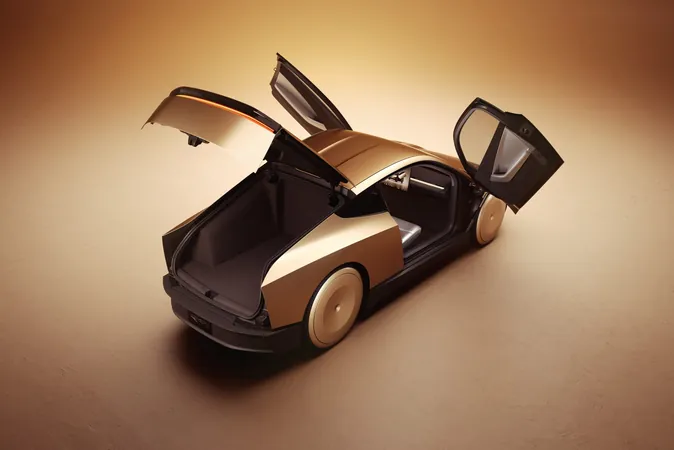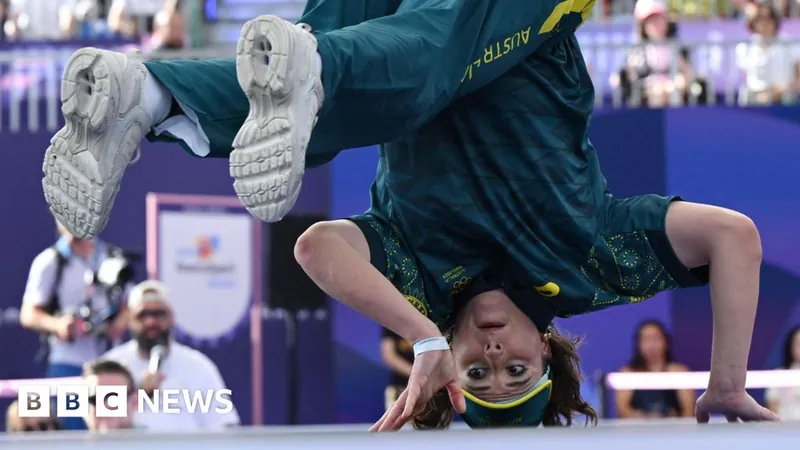
Controversy Erupts Over Tesla's Latest Robotaxi and Designs: Did Elon Musk Steal From "I, Robot"?
2024-10-15
Author: Jia
Tesla's Futuristic Reveal
In a groundbreaking reveal on October 10, Tesla showcased its futuristic Robotaxi, Optimus humanoid robot, and the new Robovan at a high-profile event dubbed “We, Robot” in Los Angeles. This unveiling marks a bold stride in Tesla’s quest for dominance in artificial intelligence and self-driving vehicles.
Controversy Surrounds the Event
However, the event was not without controversy. Renowned director Alex Proyas, famous for his work on the sci-fi film “I, Robot,” took to social media to express his disappointment. He accused Tesla and Elon Musk of borrowing heavily from the designs featured in his 2004 film, which explored the perilous implications of widespread robot production. Proyas’ claims sparked a flurry of reactions, with many suggesting he was simply seeking attention after Tesla's high-octane reveal.
Responses to Proyas' Claims
Critics of Proyas argue that car designs naturally evolve within industry trends; for instance, pickups, sedans, and crossovers often share similar aesthetics without sparking accusations of theft. It seems the automotive world often follows certain templates, and using a similar design approach does not equate to stealing ideas.
Further Criticism from the Production Team
Additionally, Proyas wasn’t alone in his critique. Matt Granger, an assistant from the "I, Robot" production, criticized Musk for a “cuter lack of creativity,” although he later deleted his comments. This further fueled the media fire surrounding the directorial claims.
Public Interest in Tesla’s Innovations
The comparisons between Tesla’s Robotaxi and the cinematic version of autonomous vehicles highlight the growing public interest in Elon Musk's ambitious projects. The Robotaxi, also known as the Cybercab, seems to draw inspiration from the Cybertruck's angular design, indicating Tesla's intent to revolutionize transportation aesthetics. Musk himself expressed that “The future should look like the future,” clearly positioning Tesla as a disruptor against more traditional electric vans like Ford's E-Transit and Mercedes-Benz's eSprinter.
Broader Questions About Originality
As the debate continues, sentiments around Tesla's new models bring to light broader questions about originality in design within the tech and automotive sectors. With the global demand for electric vehicles surging, the spotlight on innovations and inspirations will likely keep intensifying.
Conclusion: The Era of Mobility?
Are we witnessing the dawn of a new era in mobility, or is it just a case of recycled ideas? As this story continues to unfold, one thing is clear: Tesla’s latest innovations are capturing attention, both positive and critical. What do you think about the design similarities?

 Brasil (PT)
Brasil (PT)
 Canada (EN)
Canada (EN)
 Chile (ES)
Chile (ES)
 España (ES)
España (ES)
 France (FR)
France (FR)
 Hong Kong (EN)
Hong Kong (EN)
 Italia (IT)
Italia (IT)
 日本 (JA)
日本 (JA)
 Magyarország (HU)
Magyarország (HU)
 Norge (NO)
Norge (NO)
 Polska (PL)
Polska (PL)
 Schweiz (DE)
Schweiz (DE)
 Singapore (EN)
Singapore (EN)
 Sverige (SV)
Sverige (SV)
 Suomi (FI)
Suomi (FI)
 Türkiye (TR)
Türkiye (TR)